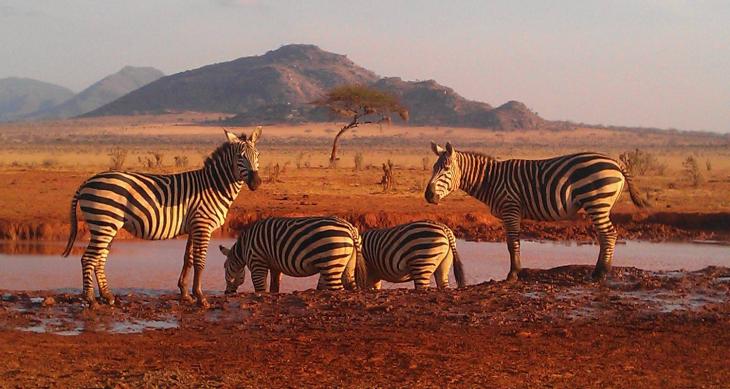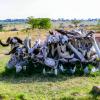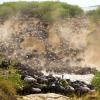A Guide to Planning a Safari in Kenya
When planning a safari in Kenya, a traveler has a choice of many package tours suited to a variety of interests and vacation budgets. The lowest priced safaris include only a few days in one or two of Kenya's game reserves. These start around $5000 plus air fare for a ten day safari. The price goes up for longer safaris, taking in more game parks. Safaris vary in price according to the types of accommodations used. Some feature only game lodges and hotels while others include a few days in tent camps. The most expensive safaris are the exclusive tented safaris.
Rather than move from camp to camp joining other travelers along the way, the client who elects this safari has a portable camp, complete with traveling staff.
Abercrombie and Kent, Ltd , which specializes in this type of safari, offers a many options tour with eight nights i exclusive camps. Their prices stretch into the five-figure range. The forms of transportation you use are another factor to consider when planning a safari. You will pay more if you elect to fly between game reserves rather than take the overland route, but you will cover more ground and will arrive rested.
Game runs will be more fruitful if you hire a four-wheel-drive vehicle rather than a van or mini-bus because you will be able to cross rough terrain and get closer to the animals. Insist that your guide go off the beaten track. A good guide will be eager to track animals for you; a poor one simply will cruise aimlessly through the park making your vacation no more exciting than a drive through one of those safari theme parks back home.
While tour operators have come a long way in supplying the comforts of home, a safari in East Africa still is not for everyone. Some people, particularly the elderly or disabled, find they cannot tolerate the insects, the dust and the bone-jarring ride over East Africa's rugged roads. Others consider this a small price to pay for the experience of a lifetime.
Travelers should be well prepared when planning a safari. Take comfortable, casual clothes. Jeans are fine, but khaki shorts, shirts and pants are more practical, though more expensive. These safari suits can be purchased in Nairobi usually at prices lower than in the states. You'll want to dress in layers. Mornings and evenings are usually quite cool, but mid-day temperatures may rise to the 80s or 90s. A hat and dark glasses will protect you from the sun, and a good insect repellent should take care of mosquitoes.
Malaria is a serious problem in Kenya and one of the most important factors in planning a safari; no traveler should embark on a safari without taking malaria prevention pills. These are available only by prescription and usually must be taken two weeks before you enter an infected area and continued for six weeks after you return. A current smallpox vaccination and yellow fever inoculation also are required for travel in Kenya.
To enter Kenya, you need a passport and a visa. And by all means do not forget to bring your camera on safari and bring plenty of batteries and memory. A telephoto lens is invaluable for game viewing and a pair of powerful binoculars will help you zero in on your photo prey.
Amin, Mohamed Spectrum Guide To African Wildlife Safaris 1989
Fodor's Fodor's The Complete African Safari Planner, 1st Edition: With Botswana, Kenya, Namibia, South Africa & Tanzania (Full-Color Gold Guides) 2008




